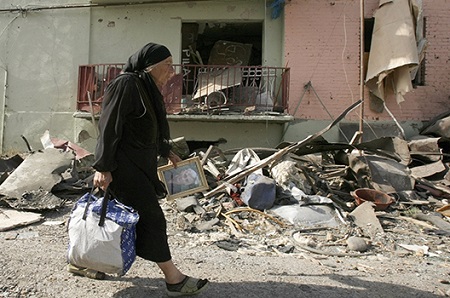Ex-UK ambassador to Georgia: The Russia-Georgia War- Not Frozen and Not Forgotten


Former UK Ambassador to Georgia Alexandra Hall Hall wrote for the Atlantic Council on the 10th anniversary of the Russia-Georgia war that it is essential not to forget the ongoing human, security, political, and economic impact both of that war, and of Georgia’s underlying unresolved conflicts with the breakaway regions of Abkhazia and South Ossetia.
Hall Hall says that though the 2008 war technically ended with a ceasefire agreement brokered by then French President Sarkozy, it is a complete misnomer to call the current situation "frozen.”
Despite Georgia’s pledge to not use unilateral force, Russia continues to violate the agreement by stationing its troops and conducting military exercises in South Ossetia and Abkhazia.
Russia has also steadily tightened its political grip on these regions. In November 2014, it signed an agreement on alliance and strategic partnership with Abkhazia, to co-ordinate its foreign, defense, economic and social policy with Moscow, as well as mandate the creation of a joint Russian-Abkhazian military unit and internal affairs center. In March 2015 Russia signed an even stronger treaty with South Ossetia, effectively incorporating its military and economy into Russia’s, and making it easier for South Ossetians to obtain Russian citizenship,” Hall Hall says.
She believes that Russian actions towards Georgia need to be understood for what they are: not just the bullying of a small neighbor, with painful consequences for the citizens of that country, but a direct challenge to the West itself.
NATO’s current practice of not inviting states with ongoing territorial disputes into the alliance has given Russia a de facto veto over Georgia’s accession. Both for the sake of the people directly affected by the conflicts, and for the sake of its own credibility, the West should not let itself be played in this way,” Hall Hall says.
See the full story here.
 Tweet
Tweet  Share
Share
